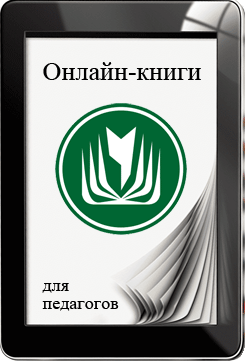English – a global language
I. Complete the sentences. Use nationality words.
1. Did you eat … cheese when you were in Holland?
2. …tea comes from China.
3. Sumo is a …sport in which two very large men fight.
4. The… live on the British Isles.
5. Do people in Mexico speak …like people in Spain?
6. Tom and Jack are Canadians. Do they speak … or …
7. The … celebrate the New Year holiday in the hottest time of the year.
8. They speak … in Paris.
II. Complete the sentences. Use prepositions.
1. She asked me to wait… her.
2…. the beginning of the lesson we practiced… writing.
3. “ Follow …me”.
4. Who does the book belong …?
5. They prefer to travel …train or … plain.
6. Your answer was really good, …fact it was perfect.
7. …the following day the weather was hot and sunny.
III. Make up the sentences using the Present Perfect.
1. To eat the porridge/not to eat the soup.
2. To finish the homework/not to play chess.
3. To win the race/ not to get the prize.
4. To have money/ not to buy a new car.
5. To grow flowers/ not to sell
IV. Ask questions.
1. They have eaten traditional Russian food during the Olympic Games.
2. She has been to the Baikal this year.
V. Translate.
Научные факты, настоящий друг, большой запас слов, разные культуры, наука и техника, возможный ответ, популярный среди туристов, приятный голос, на свежем воздухе, правильное произношение, в начале рассказа.
VI. Write British and American variants.
Конфета, аптека, плита, осень, печенье, бензин, брюки, кран, грузовик, лифт, мусор.

Боташева Фатима Ханапиевна
Высшая квалификационная категория
КЧР, Малокарачаевский район, с. Красный Курган
МКОУ « СОШ №10 им. С. К. Магометова с. Красный Курган»
Английский язык
Афанасьева О. В., Михеева И. В. «Английский язык. 4 год обучения»
Тема «English – a global language.»
8 класс
45 минут
Test. English – a global language.
I. Complete the sentences. Use nationality words.
1. Did you eat … cheese when you were in Holland?
2. …tea comes from China.
3. Sumo is a …sport in which two very large men fight.
4. The… live on the British Isles.
5. Do people in Mexico speak …like people in Spain?
6. Tom and Jack are Canadians. Do they speak … or …
7. The … celebrate the New Year holiday in the hottest time of the year.
8. They speak … in Paris.
II. Complete the sentences. Use prepositions.
1. She asked me to wait… her.
2…. the beginning of the lesson we practiced… writing.
3. “ Follow …me”.
4. Who does the book belong …?
5. They prefer to travel …train or … plain.
6. Your answer was really good, …fact it was perfect.
7. …the following day the weather was hot and sunny.
III. Make up the sentences using the Present Perfect.
-
To eat the porridge/not to eat the soup.
-
To finish the homework/not to play chess.
-
To win the race/ not to get the prize.
-
To have money/ not to buy a new car.
-
To grow flowers/ not to sell
IV. Ask questions.
-
They have eaten traditional Russian food during the Olympic Games.
-
She has been to the Baikal this year.
V. Translate.
Научные факты, настоящий друг, большой запас слов, разные культуры, наука и техника, возможный ответ, популярный среди туристов, приятный голос, на свежем воздухе, правильное произношение, в начале рассказа.
VI. Write British and American variants.
Конфета, аптека, плита, осень, печенье, бензин, брюки, кран, грузовик, лифт, мусор.
- Международный вебинар «Обучение грамоте старших дошкольников с помощью развивающих игр В. В. Воскобовича: практика реализации ФГОС и ФОП ДО»
- Международный вебинар «Волонтёрство и новые воспитательные практики в школе»
- Вебинар «Социально-коммуникативное развитие детей дошкольного возраста в условиях реализации ФОП ДО и обновлённого ФГОС ДО»
- Международный вебинар «Цель и преимущества использования ТРИЗ-технологии в дошкольном образовании в условиях реализации ФОП ДО»
- Психология профессионального образования: общая характеристика
- Вебинар «Кинезиологические игры и упражнения в развитии психических процессов дошкольников»







Согласно критериям , разработка должна быть снабжена текстовым файлом пояснительной записки, а в файле теста необходимо привести список использованной литературы.
С уважением, С.А. Колодин.